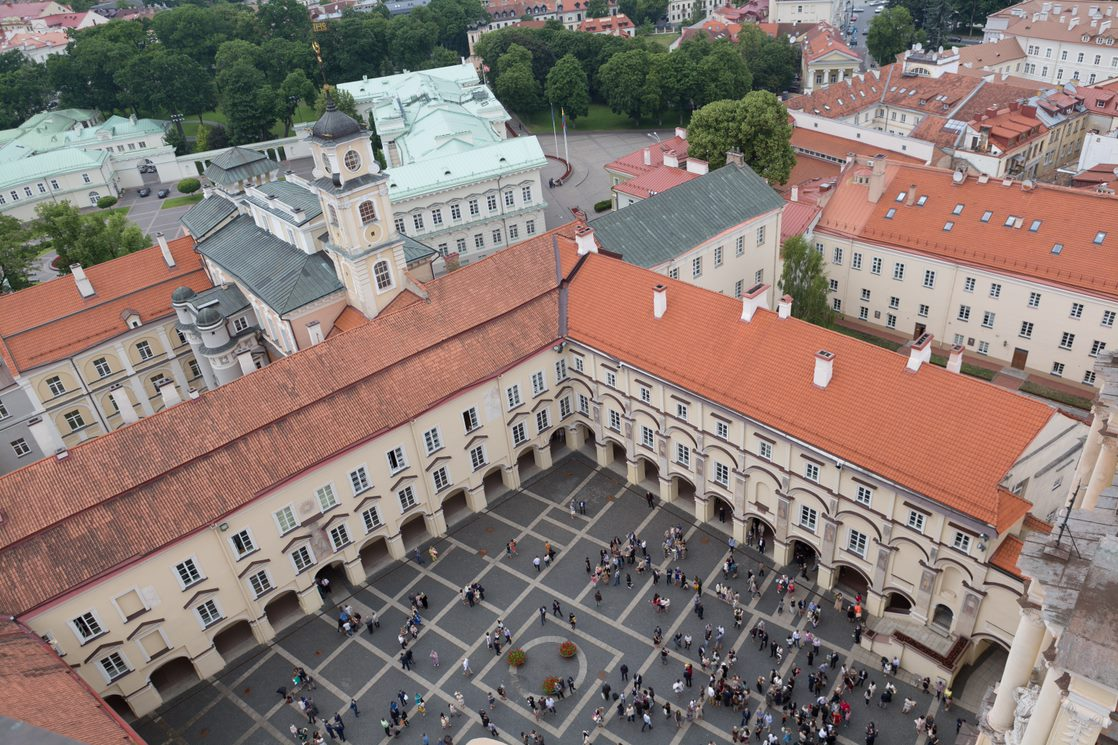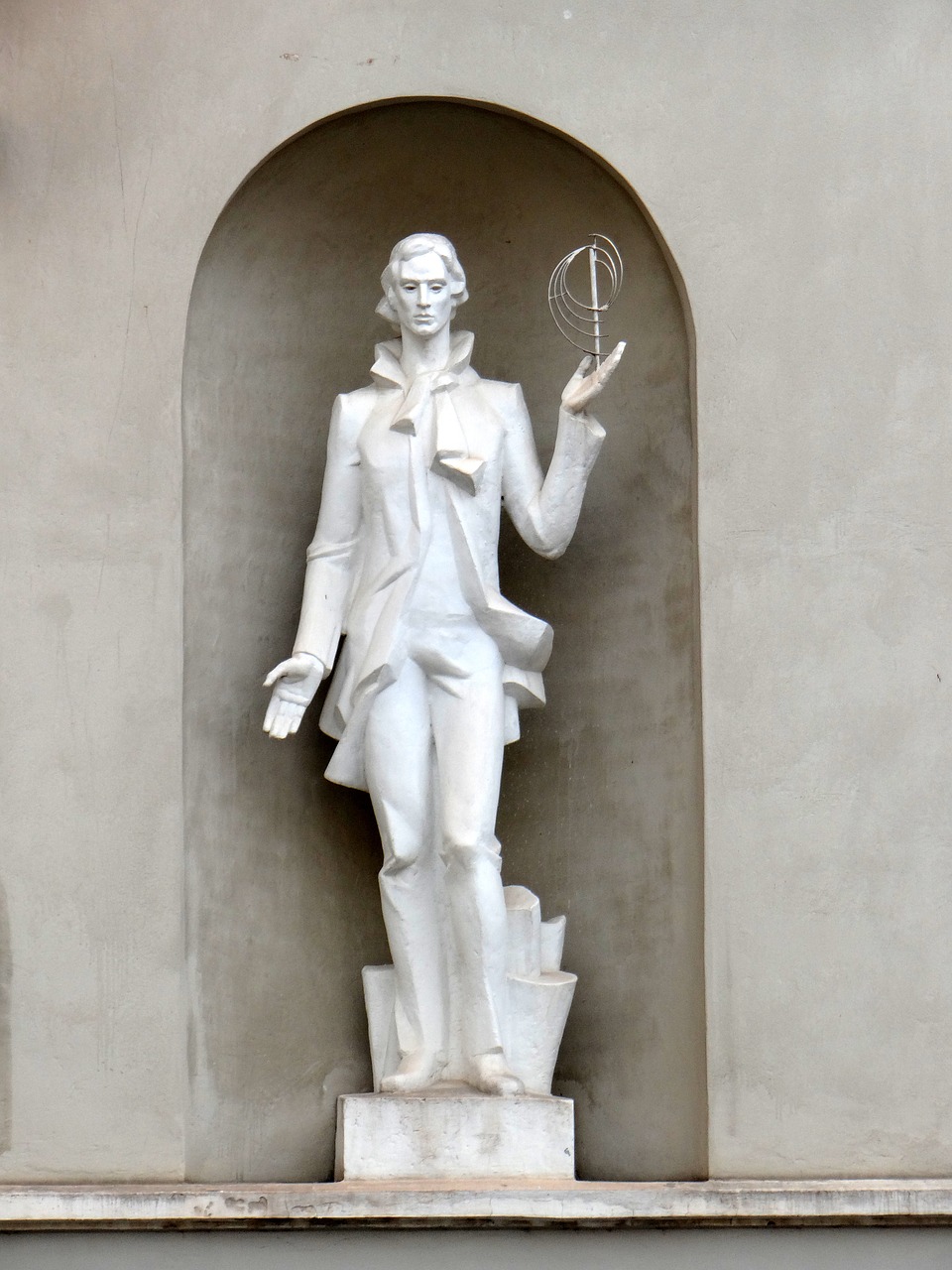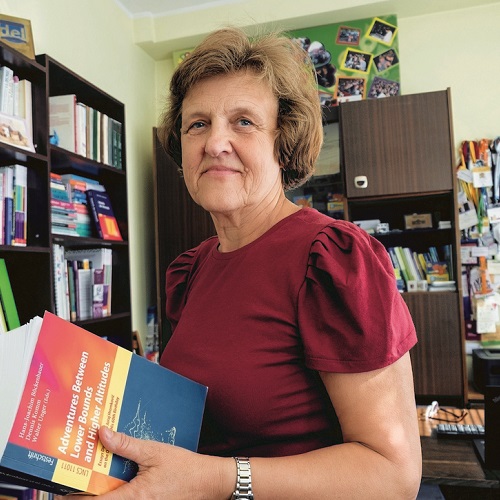Our series continues with our partners in Lithuania
About Vilnius University
Vilnius University is the largest University in Lithuania involved in multi-disciplinary academic activity. It was founded in 1579 and is one of the oldest higher education institutions in Eastern and Central Europe. During more than four centuries of its existence, Vilnius University (hereinafter – VU) grew into the leading University in Lithuania.
The University retains its leading role in a broad spectrum of fundamental and applied research, education, training and retraining, consultancy, providing research and development services to a wide range of businesses. VU has 14 academic units (Faculties, Centres and/or other), one of the oldest Libraries in Lithuania, the Astronomical Observatory, the Botanical Garden and 2 Hospitals of VU. In 2018, there were 17865 students studying at VU. They are accompanied by 2601 specialists, 1954 of them teachers, 647 scholars, including 1803 habilitated doctors and doctors.

Vilnius University Building. Photo: Edgaras Kurauskas.

Photo: Jolanta Dyr, Pixabay
International Research Involvement
VU actively participates in international scientific and academic activities and embodies the concept of a traditional university – the integrity of research and education. VU takes responsibility to maintain the highest level of education and research sustained by University’s research teams of international acclaim and new teams led by talented young researchers. This way, VU fulfills the needs of the state and society in the European research and education area. VU also seeks to ensure annually increasing involvement in European research and educational programs.
VU has been involved in international research projects alongside the University of Education in Freiburg and many other ICSE founding instiutions since 2013, when they worked on the Mascil (Mathematics and Science for Life) project together. Valentina Dagienė, who is one of the key actors in the ICSE Consortium from Vilnius University, recalls: “It was one of the most interesting project. I met professor Katja Maaß and her team – it was a wonderful collaboration, fantastic people. We enjoyed being part of such a productive community. We learned a lot.” Valentina felt that the international collaboration during Mascil enhanced the work of VU in important ways: “I have a very good connection with schools in Lithuania, I have been organizing many workshops and seminars for teachers, I wrote many textbooks for school children (more than 60). So the experience from Freiburg was very useful for our teachers.”
Visions for ICSE’s and VU’s future
However, VU is not only gaining valuable insights from the cooperation with ICSE. VU is also bringing a lot to the table. Through prior projects, VU has established good contact with the Lithuanian Ministry of Education and Science. These connections help the creation and implementation of innovative projects, like the new policy experimentation 3C4Life, which both the Lithuanian Ministry and Vilnius University are a part of. Additionally, as many countries focus more and more on STEM education – both for students and teachers, Vilnius university is establishing STEM laboratories. There they develop materials, plans, recruit teachers, etc. Through ICSE they gain continuous insights into what other universities are going.
Valentina shares her vision for the future: “My field is Informatics or Computer Science, I am involved in Computational Thinking, which is more and more popular in school curricula of all countries. There is a movement connecting STEM and CT – I think this movement is promising in a good way. I would like to see better connections between mathematics and informatics education, also involving gamification elements. We should make teaching mathematics and informatics more inquiry based and enjoyable. My dream is to link the Bebras challenge activities in Informatics to the ICSE network!”

Prof. Dr. Valentina Dagienė
Who is involved in ICSE?
Prof. Dr. Valentina Dagienė (valentina.dagiene@mif.vu.lt) is Principal Researcher from the Institute of Data Science and Digital Technologies at Vilnius University. She has been working closely together with other people from the ICSE Consortium since her involvement in Mascil in 2013.
Professor Arūnas Poviliūnas (arunas.poviliunas@fsf.vu.lt), is the Dean of Faculty of Philosophy and one of the promoters of STEMM laboratories in Vilnius University. He made initial plans and structure, found resources for establishing the centre.
Ass. Prof. Dr. Eglė Jasutė (egle.jasute@fsf.vu.lt) was involved in the Mascil project and continues working with ICSE. She is also secondary school teachers of Mathematics and Informatics.
Ass. Prof. Dr. Asta Meškauskienė (asta.meskauskiene@fsf.vu.lt) is involved in teacher training and professional development.
Both of the latter are enthusiastic about developing activities for school students and teachers, for example summer schools for girls in STEM (eg. for the ICSE project GEM) and teacher training seminars in computational thinking.
